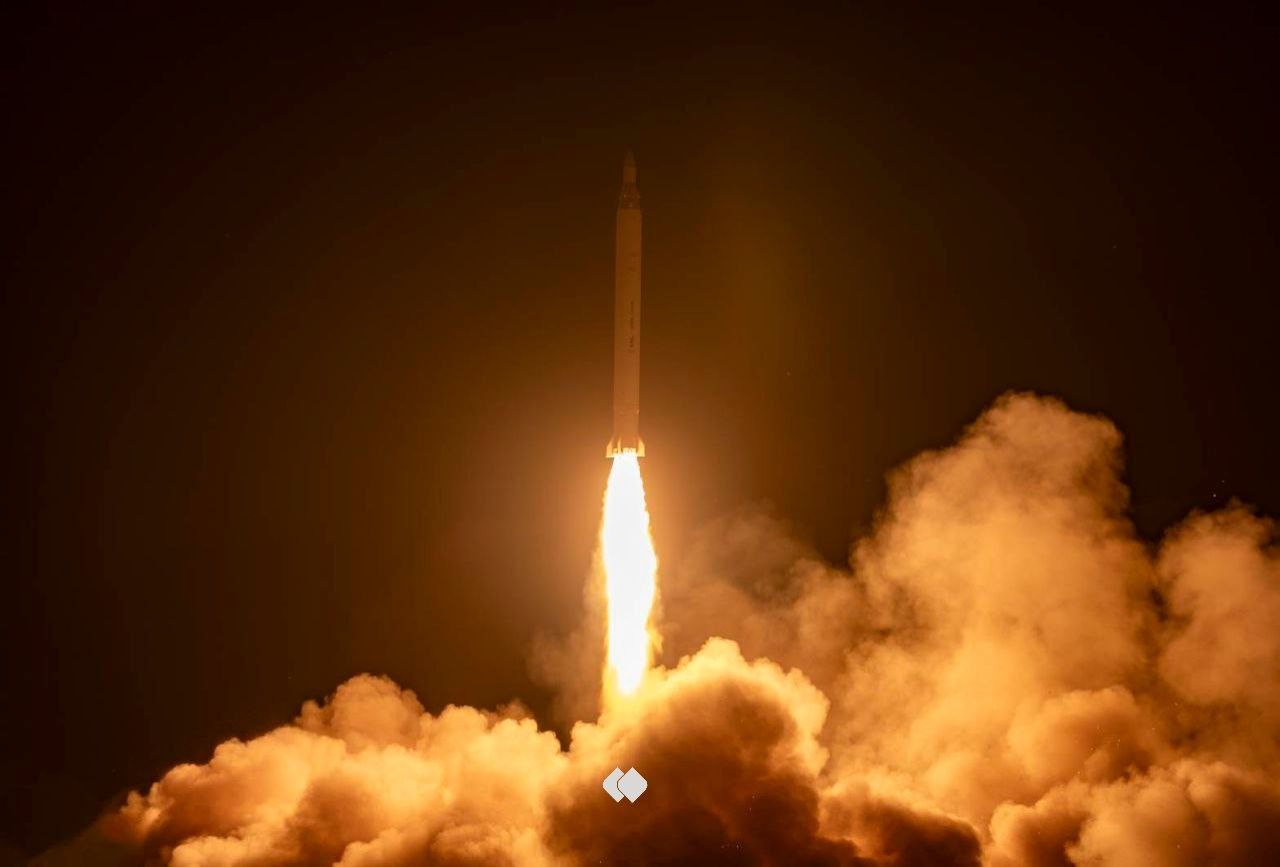(VIDEO) Iran Launches 200 Ballistic Missiles at Israel, Deploys “Fattah” Hypersonic Missile
(VIDEO) "If the Zionist regime reacts to Iran’s operations, it will face even more devastating attacks," said the Islamic Revolutionary Guard Corps in a statement carried by the Fars news agency.
(DEFENCE SECURITY ASIA) – Iran’s Revolutionary Guards (IRGC) have threatened to launch “more devastating counterattacks” against Israel if the Jewish state retaliates for the barrage of approximately 200 ballistic missiles fired by Iran.
“If the Zionist regime reacts to Iran’s operations, it will face even more devastating attacks,” said the Islamic Revolutionary Guard Corps in a statement carried by the Fars news agency.
The IRGC stated that the attack was “in accordance with the United Nations Charter.”
It said that the ballistic missile strike was carried out “after a period of restraint” by Iran, in response to the “attack on Iran’s sovereignty” – a reference to the assassination of Hamas leader Ismail Haniyeh in Tehran in late July.
Among the missiles used against Israel were the hypersonic “Fattah” and the Kheybar-Shekan missiles.
This marks the first time Iran has launched its hypersonic “Fattah” missile since its unveiling.
Video Player
00:00
00:00
Iran’s first hypersonic missile, “Fattah,” is capable of traveling at Mach 15, with Tehran claiming that it cannot be intercepted by any air defense system due to its high speed.
Iranian officials assert that the black-painted “Fattah” missile is capable of hitting targets at a range of 1,400 kilometers.
According to Iranian media, “Fattah” can reach speeds of Mach 15 or over 5,000 meters per second, and no advanced U.S. or Israeli air defense system can intercept it.
Regional military observers have noted that the development of the “Fattah” hypersonic missile will heighten concerns in the United States and Israel about Tehran’s missile technology capabilities.
Iran launched a series of missiles targeting Israel’s commercial hub Tel Aviv, as well as several military bases and airbases housing Israeli fighter jets, including F-35s.
The United States had earlier warned of an imminent Iranian ballistic missile strike on Israel, stating that it would lead to “severe consequences” for Tehran.
Iranian media aired online footage purportedly showing missiles being launched at Israel.
Video Player
00:00
00:00
State television broadcast the footage with upbeat music, as the newscaster praised the “bravery of the Iranian people.”
This missile strike was Iran’s second on Israel in the past six months, following an April missile and drone attack in retaliation for a deadly Israeli airstrike on Iran’s consulate in Damascus.
An Israeli strike on Beirut last Friday killed Hezbollah leader Hassan Nasrallah.
Nasrallah was killed alongside General Abbas Nilforoushan, a senior commander of the IRGC’s Quds Force, which oversees foreign operations.
Iran vowed that Nilforoushan’s killing “would not go unanswered.”
At last month’s United Nations General Assembly in New York, President Masoud Pezeshkian accused Israel of warmongering while Iran exercised restraint.
He suggested that Tehran refrained from retaliating for Haniyeh’s assassination out of concern it might disrupt U.S.-backed peace efforts in the Gaza war.

“We tried not to respond. They kept telling us we were on the verge of peace, perhaps within a week or so,” he said.
On Sunday, Pezeshkian said that promises by the United States and its allies of a “ceasefire in exchange for Iran’s non-response to Haniyeh’s assassination were completely false.”
He added that “giving these criminals (Israel) a chance will only encourage them to commit more crimes.”
Iran does not recognize Israel and has made support for the Palestinian cause a central pillar of its foreign policy since the 1979 Islamic Revolution.
Tehran praised its ally Hamas’s October 7 attack on Israel, which triggered the Gaza war, but denied any involvement. — DSA



Comments are closed.